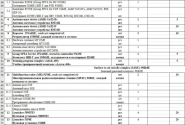Leak exposes details of Russian-Indian S-400 deal
On July 15, 2024, the cyber-activist group Cyber Resistance, in collaboration with the international intelligence community
, began releasing a series of publications named BaumankaLeaks.
The data stemmed from hacked emails of high-ranking Russian officers, revealing sensitive information about Russian-Indian defense contracts, including the highly publicized S-400 missile systems deal.
The release coincided with a diplomatic incident involving India and Ukraine. The Indian Ministry of External Affairs summoned the Ukrainian ambassador following President Volodymyr Zelensky’s condemnation of Indian Prime Minister Narendra Modi’s meeting with Russian President Vladimir Putin, amidst a Russian missile strike on a children’s hospital in Kyiv.
In response, InformNapalm decided to disclose extensive details about the Russian-Indian defense contracts, including a comprehensive list of equipment under the S-400 supply contract, which was initially intended to be released in a redacted form.
The S-400 “Triumf” contract, signed in 2018 during Putin’s visit to India, was heralded as a landmark deal for the Russian defense industry, amounting to over $5 billion. This agreement was not only a significant financial transaction but also a strategic move to deepen India’s dependency on Russian military technology. The contract included the provision of long-term training for Indian specialists, ensuring India’s reliance on Russian expertise and future upgrades.
However, the deal soon acquired the reputation of being “problematic” due to repeated delays attributed to Russia’s “own needs” and its ongoing war against Ukraine. Despite these setbacks, Russia remains committed to fulfilling the contract to maintain its strategic influence over India.
The
emails include detailed inventories of the S-400 systems, specifying the quantity and codes of all components, including spare parts. Critically, the documents also list the exact number of munitions that Russia will supply to India. One of the key emails was sent by Vladimir Chervakov, the head of the Bauman Moscow State Technical University’s Air Defense Department, to faculty members, revealing the comprehensive breakdown of the S-400 divisions.
The leak highlights Russia’s inability to secure sensitive information, thereby posing a direct threat to the security of its partners. By exposing detailed defense contracts, the leak serves as a cautionary tale for countries engaging in military agreements with Russia. The incident also raises concerns about the confidentiality and integrity of defense-related transactions in the current geopolitical climate.
The BaumankaLeaks incident reveals critical vulnerabilities in Russia’s handling of sensitive defense information, potentially jeopardizing its international military partnerships.











